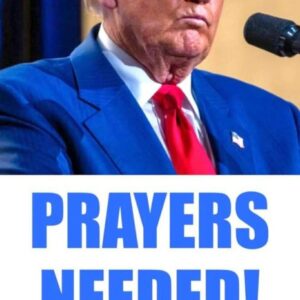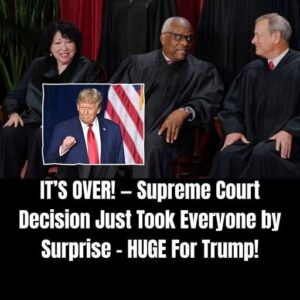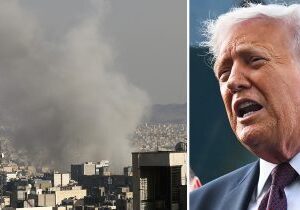In an extraordinary assertion of presidential power, President Donald Trump has launched an aggressive probe into two of his most vocal former administration critics—former Cybersecurity and Infrastructure Security Agency (CISA) Director Chris Krebs and ex–Department of Homeland Security (DHS) official Miles Taylor. By revoking their security clearances and ordering investigations into their actions during the 2020 election and beyond, Mr. Trump has elevated this feud into a matter of “national security.” He has also gone so far as to brand their conduct “treasonous.” These decisions raise profound questions about executive authority, the role of independent government agencies, and the limits of dissent within the national security establishment.
This article presents a comprehensive analysis of these latest developments, charting the legal and historical basis for security clearances, the specific accusations leveled against Mr. Krebs and Mr. Taylor, the broader political context, reactions from across the spectrum, and the lasting implications for U.S. governance, cybersecurity, and public trust.
I. The Anatomy of a Presidential Memorandum
On a routine White House post, President Trump issued a Presidential Memorandum directing all federal departments and agencies to “revoke any active security clearances” held by Chris Krebs and Miles Taylor. The memo went further, instructing the Department of Justice (DOJ) to investigate alleged “malign acts” committed by these men during their government service. Sanctions also extend to associated private entities and academic affiliations—such as SentinelOne, Krebs’s employer, and the University of Pennsylvania, where Taylor lectures—pending a review of whether their staff should retain access to classified materials.
A. The Language of the Memo
-
Revocation of Clearances: The terse directive orders immediate rescission of existing clearances, blocking access to classified briefings (e.g., the President’s Daily Brief) and sensitive facilities.
-
Launch of Probes: The DOJ is tasked with “uncovering each malign act,” with no deadline given—suggesting an open‑ended investigation.
-
Elements of Treason: In describing Taylor’s actions, Mr. Trump explicitly invoked the term “treason,” signaling that the stakes are being framed as exceptionally grave.
B. Why a Memorandum Matters
Presidential memoranda, while less formal than executive orders, carry significant force. They direct heads of executive‑branch agencies to implement policy instantly and can reshape agency operations overnight. Here, the memo weaponizes the security clearance process—historically reserved for assessing loyalty and fitness to handle secrets—as a retribution tool against critics, rather than an objective safeguard.
II. Who Are Chris Krebs and Miles Taylor?
A. Chris Krebs: The “Most Secure Election” Architect
Appointed in November 2018 to head CISA, Chris Krebs became the public face of federal election‑security efforts. During the 2020 election:
-
He oversaw coordination with state election officials, cybersecurity firms, and intelligence agencies to guard against foreign interference.
-
In November 2020, Krebs declared it “the most secure in American history,” rejecting widespread fraud claims.
-
His candor earned him bipartisan praise in cybersecurity circles but infuriated President Trump, who viewed his assurances as a challenge to the White House narrative.
Two days after issuing that statement, Krebs was fired via tweet—a rare public rebuke of a high‑ranking security official.
B. Miles Taylor: The Anonymous “Resistance” Voice
Miles Taylor served as chief of staff to DHS Secretary Kirstjen Nielsen from 2017 to 2019. During that time:
-
Taylor wrote anonymously for the New York Times in 2018, calling the administration’s policies “reckless” and detailing internal chaos.
-
In August 2020, he publicly revealed his identity, becoming a frequent cable‑news commentator and Trump critic.
-
He led a “Resistance” PAC and authored op‑eds and a book sharply critical of the president’s handling of immigration and national security.
While Krebs was fired directly, Taylor resigned in 2019—and later enjoyed a lucrative career in consulting and academia.
III. Security Clearances: Purpose, Process, and Precedent
A. The Rationale for Security Clearances
Security clearances exist to:
-
Protect classified information by ensuring only vetted individuals have access.
-
Safeguard intelligence sources and methods.
-
Maintain trust among coalition partners who share sensitive data.
Clearances are granted after exhaustive background investigations by agencies such as the Office of Personnel Management (OPM) and adjudicated according to factors like allegiance, foreign ties, financial stability, and personal conduct.
B. Revocation as a Disciplinary Measure
Under federal regulations (Executive Order 12968 and subsequent guidance):
-
Clearances may be suspended or revoked if a person no longer meets criteria—e.g., criminal conduct, financial vulnerability, or unauthorized disclosures.
-
Historically, revocations are rare and tied to objective findings, not political disagreements.
C. Historical Comparisons
-
George Tenet (CIA Director): In 2004, his clearance was not revoked despite controversies over pre‑Iraq‑war intelligence—sparking calls for his removal, but no formal revocation occurred.
-
Walt Whitman Rostow: LBJ’s national security advisor faced scrutiny over dual loyalties but retained clearance after review.
-
The use of revocations for political reasons has been virtually nonexistent—until now.
IV. The Justification: “Weaponizing” Government Platforms
A. Trump’s Accusations Against Krebs
White House Staff Secretary Will Scharf asserted that Krebs:
-
“Weaponized his position” by publicly contradicting election‑fraud narratives.
-
Spread misinformation about COVID‑19, according to the administration’s framing of CISA’s “mis‑info” task force.
-
Undermined “free speech” by labeling electoral fraud claims “misinformation”—a charge Krebs rejects as defending factual integrity.
B. Taylor’s “Treason” Comment
In a public appearance, President Trump branded Taylor’s actions—particularly his calls for impeachment and detailed criticisms of DHS policies—as tantamount to “treason.” While legal definitions of treason are specific—levying war or aiding enemies—this invocation speaks to the administration’s angrily punitive posture.
C. Election Security vs. Political Narrative
The ideological gulf over the 2020 election’s integrity fuels the tension:
-
Krebs’s March 2021 CISA statement, “There is no evidence that any voting system deleted or lost votes,” directly contradicted Trump’s repeated claims of systemic fraud.
-
Trump loyalists perceived Krebs’s assurances as sabotage, undermining public trust in Republican‑controlled election offices.
V. Legal and Constitutional Questions
A. Separation of Powers and Agency Independence
The Constitution vests “executive power” in the president—but also envisions nonpartisan civil servants who implement laws based on expertise, not ideology. By revoking Krebs’s and Taylor’s clearances:
-
The president is effectively punishing policy dissent—a direct challenge to civil‑service protections embedded in the Pendleton Act and Homeland Security Act.
-
It sets a precedent that future presidents could remove clearances from officials who dissent from any policy.
B. Due Process Considerations
Neither Krebs nor Taylor were given:
-
Formal charges detailing the alleged misconduct.
-
An opportunity to respond before clearances were stripped.
-
A transparent appeals process.
This lack of due process is troubling under the Fifth Amendment’s guarantee of fair procedures when the government deprives citizens of “life, liberty, or property.” While security clearances are not property per se, courts have recognized a clear procedural interest in them, given their impact on employment and professional standing.
C. Potential Judicial Challenges
Legal scholars predict:
-
Injunctive relief lawsuits seeking to restore clearances on constitutional grounds.
-
Freedom-of-speech litigation, arguing that punishing officials for public statements violates the First Amendment.
-
Administrative‑procedure actions challenging the memo as arbitrary and capricious under the Administrative Procedure Act (APA).
However, courts traditionally defer to the executive on national security matters, making victory an uphill battle. The political question doctrine may shield much of this from judicial review.
VI. Political Backlash and Public Opinion
A. Bipartisan Reactions
-
Republican support: Key Trump allies praised the move as restoring loyalty and discipline, arguing that national security chiefs must toe the party line, particularly on fraught issues like election integrity.
-
Democratic outrage: Democrats framed it as authoritarian, chilling dissent, and eroding nonpartisan election oversight. Representatives called for hearings on the misuse of security clearances as political weapons.
B. Cybersecurity Community Response
-
Many cybersecurity experts rallied around Krebs, emphasizing that he followed best practices and data-driven conclusions.
-
Professional societies, including the International Information System Security Certification Consortium (ISC²), issued statements defending the independence of security professionals.
C. Media and Public Trust
-
Editorial boards across major newspapers criticized the revocations as undermining democratic norms.
-
Polls indicate that public confidence in election security was already shaky; this action may further erode trust, especially among independents.
VII. International Observers and Diplomatic Fallout
A. Allies and Information‑Sharing
NATO partners and Five Eyes intelligence allies rely on trust in U.S. cybersecurity leadership.
-
The removal of Krebs, a respected figure in global election‑security circles, has raised concerns that the U.S. may no longer honor independent analysis of cyberthreats.
-
Senior European officials privately worry that U.S. policy will now be driven by political loyalty rather than objective intelligence.
B. Adversaries’ Reactions
-
Russia and China have seized on the controversy in propaganda campaigns, portraying the U.S. as politically unstable and unwilling to protect fundamental security institutions.
-
State‑backed hackers may be emboldened, sensing discord in U.S. defenses at the highest levels.
VIII. Looking Ahead: Implications for Governance and Cyber Policy
A. The Future of Security‑Clearance Oversight
-
Reform proposals: Bipartisan bills in Congress aim to codify an appeal process for clearance revocations and insulate clearance decisions from political directives.
-
Agency autonomy: DHS and CISA leadership transitions will test whether career officials can retain authority in the face of politicized White House interventions.
B. Election Security and Cyber Resilience
-
The Biden administration (if confirmed) will face immediate pressure to rebuild CISA’s reputation and restore Krebs’s strategies on election protection.
-
Investment in nonpartisan cyber‑defense coalitions and open data sharing is likely to grow, as states and localities demand reliable guidance.
C. Broader Democratic Norms
This episode crystallizes a crucial question: Can a functioning democracy tolerate the weaponization of security‑clearance processes against political dissenters? The answer may determine not only the future of U.S. national security structures but the very integrity of democratic governance—balancing robust executive power with the independence of professional civil servants charged with safeguarding the republic.
IX. Conclusion: The High Stakes of Accountability and Dissent
President Trump’s unprecedented revocation of Chris Krebs’s and Miles Taylor’s security clearances—and his open labeling of Taylor’s dissent as “treason”—represents a sharp escalation in the clash between the executive branch and independent national security officials. By framing public service dissent as malfeasance, this administration has blurred the lines between responsible oversight and political retribution.
The long-term fallout will hinge on legal challenges, congressional responses, and the resolve of future leaders to restore—or redefine—the barriers between politics and security. As investigations proceed and the nation grapples with the implications, one thing remains certain: the very foundations of U.S. democracy and the trust that underpins its security apparatus are now on trial. How they emerge from this crisis will shape American governance and cyber‑resilience for generations to come.





